

Stroke in Elderly: Causes, Signs & Prevention
Stroke is a serious medical condition that occurs when the blood flow to any part of the brain is disrupted. This prevents brain cells from receiving oxygen and nutrients, causing severe damage or death in the affected individual. Stroke is one of the major causes of disability among elders, with most cases reported in over-65 population. With its sudden onset and a prolonged recovery period, stroke survivors undergo many challenges in life, more so if you are elderly. Read on to learn more about stroke in elderly.
Are Elderly More At Risk of Stroke?
Yes, elderly individuals are at a significantly higher risk of stroke compared to younger people because:
1. As we age, blood vessels naturally become stiffer and narrower, making it easier for blockages or ruptures to occur.
2. Major stoke risk factors like high blood pressure, diabetes, atrial fibrillation (a heart rhythm disorder), and high cholesterol are more common in older adults.
3. Lifestyle habits such as poor diet, smoking and alcohol consumption, inactivity, or unmanaged medical conditions add up and increase stroke risk.
More strokes occur in people- over age 65, and the risk doubles every decade after age 55.
Causes of Stroke in the Elderly
The causes of stroke in the elderly are often related to long-term health conditions and changes in the vascular system. The 2 main types of stroke – ischaemic and hemorrhagic- have different causes, but many risk factors overlap.
A) Ischaemic Stroke (about 85% of strokes):
This occurs when a blood vessel supplying the brain is blocked.
• Atherosclerosis:
Build-up of fatty plaques in the arteries, reducing blood flow.
• Atrial Fibrillation:
An irregular heartbeat that can cause blood clots to form and travel to the brain.
• Carotid Artery Disease:
Narrowing of the carotid arteries due to plaque buildup.
• Small Vessel Disease:
Damage to the tiny arteries in the brain, often due to long-standing hypertension or diabetes.
• Embolism from the Heart:
Often due to heart disease or clots formed in the heart chambers.
B) Hemorrhagic Stroke (about 15% of strokes);
This happens when the blood vessel in the brain bursts, causing bleeding:
• High Blood Pressure (Hypertension):
The leading cause of brain hemorrhages.
• Aneurysms:
Weakened blood vessels that can rupture.
• Amyloid Angiopathy:
Age-related weakening of blood vessel walls due to proetin deposits.
• Use of blood thinners:
This can increase bleeding risk, especially in frail vessels.
C) Additional Contributing Factors;
• Diabetes Mellitus:
Damages blood vessels over time.
• High Cholesterol:
Leads to plaque formation in arteries.
• Atrial Fibrillation:
It can cause blood clot formation in the heart which can then move to the brain.
• Obesity and physical inactivity
• Smoking:
It increases the risk of clod clot formation.
• Excessive alcohol consumption
Understanding the causes of stroke in elderly is important for its effective prevention and management. Here are some known factors that raise the risk of stroke in the elderly:
Signs of Stroke in Elderly
This includes:
• Face drooping
• Arm weakness
• Speech difficulty
• Sudden numbness or weakness of the face, arm, or leg, especially on one side of the body
• Sudden trouble speaking or understanding speech,
• Sudden trouble seeing in one or both eyes
• Sudden trouble walking, dizziness, or loss of balance or coordination
Conclusion
Even in older age, lifestyle changes, medication adherence, and regular check-ups can significantly reduce stroke risk.
While it is important to take care of your health, medical emergencies can strike at any time. To cover medical costs, it is highly recommended that you buy health insurance.
One of the important components of our overall wellness is also being financially secured. Healthcare emergencies can happen any time, but a good health insurance policy can protect you from such uncertain situations. To know more about Wellness and other health related tips, visit the wellness corner.
Disclaimer: This blog provides general information and discussions about health and related subjects. The information and other content provided in this blog, website or any linked materials are not intended and should not be considered or used as a substitute for medical advice, diagnosis or treatment. Kindly contact your doctor before starting a new medicine or health regime.
Related Articles
Age-related diseases in Older Adults
Ischemic Heart Disease: Symptoms and Treatment
Symptoms Of Heart Attacks In Women: Symptoms & Causes
What is Myocardial Infarction – All You Need to Know about it
Sudden Cardiac Arrest: Causes, Symptoms and Risk Factors
Published on June 24, 2025



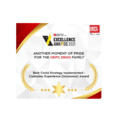
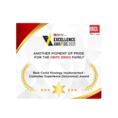
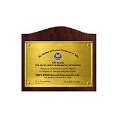



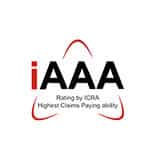

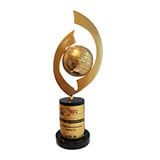



 Health Insurance
Health Insurance  Travel Insurance
Travel Insurance  Car Insurance
Car Insurance  Cyber Insurance
Cyber Insurance  Critical Illness Insurance
Critical Illness Insurance
 Pet Insurance
Pet Insurance
 Bike/Two Wheeler Insurance
Bike/Two Wheeler Insurance  Home Insurance
Home Insurance  Third Party Vehicle Ins.
Third Party Vehicle Ins.  Tractor Insurance
Tractor Insurance  Goods Carrying Vehicle Ins.
Goods Carrying Vehicle Ins.  Passenger Carrying Vehicle Ins.
Passenger Carrying Vehicle Ins.  Compulsory Personal Accident Insurance
Compulsory Personal Accident Insurance  Travel Insurance
Travel Insurance  Rural
Rural